-
Publish Your Research/Review Articles in our High Quality Journal for just USD $99*+Taxes( *T&C Apply)
Offer Ends On
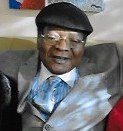
1988-1990: Post-Doctorate Certificate in
Epidemiological Science
United States National Institutes of Health
John E. Fogarty International Center
For Advanced Study in the Health Sciences
United States Public Health Services
National Institutes of Health, MD USA.
Fall 1978-1981:
Doctor of Philosophy
University of Illinois
Urbana-Champaign, Illinois
Public Health & Statistics.
1977-1978:
University of Illinois
Chicago, Illinois
Gerontology, Community Mental Health.
1976:
Master of Science
Western Illinois University
Macomb, Illinois 61455-1390
Community Health Sciences.
1975:
Bachelor
Western Illinois University
Macomb, Illinois 61455-1390
Pre-Med/Philosophy.

Behavioral Management of Challenging Pediatric Behavior in the dental environment using Non-pharmacological and Pharmacological Approaches

Dr.Mahaveer Mehta is Chairman and Medical director in his own medical Center in Dubai since may 1990. Prior to this he was Chairman of the Dept. of Dermatology at Qatar armed Forces medical unit and Chairman of Dermatology at International Hospital Bahrain. He has also worked as Faculty member in Al Fatah University, Tripoli, Libya and SMS medical college, Jaipur. Dr. Mehta is internationally well known in the field of Dermatology and Lasers. He is a pioneer in introducing Lasers to the Middle East. He is successfully practicing in Dubai since 1990.
His clean reputation is not limited to just UAE but spread across seven seas. He is one of the strongest promoters of Health Tourism in Dubai.
Dr. Mehta is a Chair and Speaker at several international dermatological and laser conferences.
He is a member of Several Dermatology and Laser societies in the world.
He is Board of Director, The Dermatologic & Aesthetic Surgery International League (DASIL) 2013, 2014, 2015 and 2016.
He is Congress President for annual conference DASIL Dermatology Aesthetic surgery International league, USA held in Dubai in Oct 2016 with support from Dubai Tourism department, Government of Dubai.
Clinical and Cosmetic Dermatology.
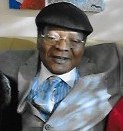
Prof. Ebomoyiis the chairperson for the Department of Health Studies at the Chicago State University. He received his post-doctorate certificate from the World renowned, National Institutes of Health, MD, in genetic epidemiology and a PhD from University of Illinois at Urbana-Champaign, Illinois, USA; where he studied Public Health and Statistics. Currently, he is a professor of Epidemiological Science at the Chicago State University, Chicago Illinois. He taught biostatistics at Tufts Medical School in Boston. In1990 he was appointed as the director of sickle cell research center and an adjunct professor of Pediatrics at the Tulane University Medical center in New Orleans, Louisiana. He served under Mayor Jerry Wones, as Air Quality Commissioner for the City of Greeley, Colorado. He also taught epidemiology and biostatistics at the University of Northern Colorado in Greeley Colorado in the Department of Community Health and Nutrition. He now serves as an Editorial Board Member of several reputable journals.
International Health, Primary Health Care Services, Program Planning and Evaluation, Research Methods, Genetics and Genomic Epidemiology, Epidemiology of HIV/AIDS and other sexually transmitted infections, Ecological Aspects of Human Diseases, Nutritional Anthropometry, and Community Health Education, Student-Centered learning, Environmental Epidemiology and Health Disparities.
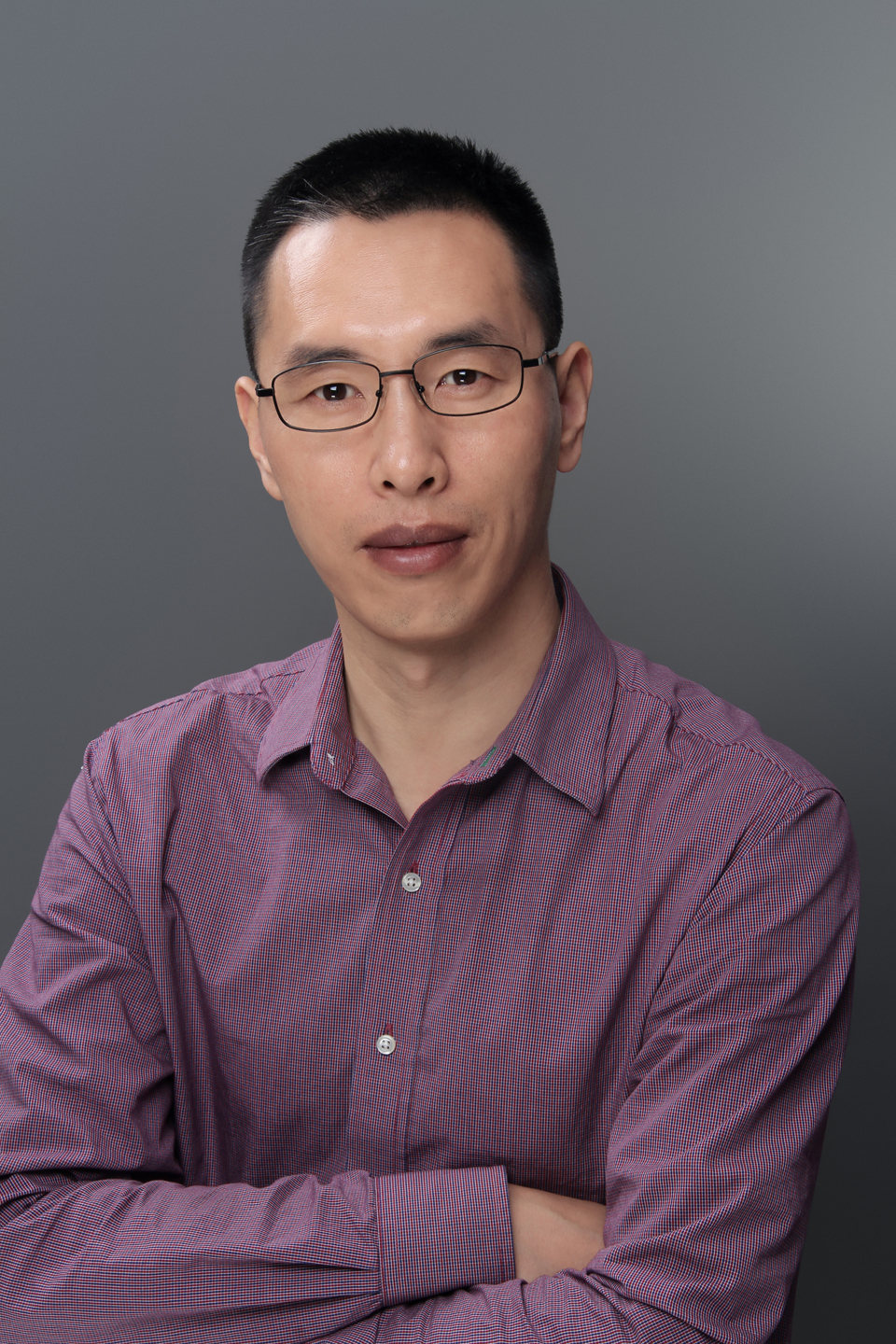
Dr. Ying-Yong Zhao (PhD, MD) is pharmacology professor at Faculty of Life Science & Medicine, Northwest University in China. He has recognized contributions in renal pharmacology, systems biology and natural products. He serves as Chief-in-editor (World Journal of Nephrology), Associate Editor (Frontiers in Medicine, Frontiers in Molecular Medicine, Exploration of Medicine, Integrative Medicine in Nephrology and Andrology, Frontiers in Pharmacology), Editor (Pharmacognosy Magazine), Senior Editorial Board (Scientific Reports) and Editorial Board (American Journal of Nephrology, Molecular Medicine Reports, Experimental and Therapeutic Medicine). Zhao has authored 1804 peer-reviewed publications in Nature Communications, Trends in Pharmacological Sciences, Medicinal Research Reviews, British Journal of Pharmacology, Redox Biology and Free Radical Biology and Medicine, as well as H index, is 55. These publications were cited more than 9000 times in the past ten years. His study mainly focuses on the mechanism of pathogenesis of diabetic kidney disease, chronic kidney disease, and the therapeutic effect of natural products.
Chronic Kidney Disease; Nephrotoxicity; Renal Fibrosis; Oxidative Stress And Inflammation; Gut Microbiota; Systems Biology; Metabolomics; Lipidomics; Mass Spectrometry; Renin-Angiotensin System; Natural Products.

Dr. Rajendra D. Badgaiyan, MD, is the Chief of Psychiatry at South Texas Veterans Health Care System San Antonio, Texas, and Professor of Psychiatry at Long School of Medicine, University of Texas Health, San Antonio, Texas. Dr Badgaiyan went to medical school in Bhopal, India and trained in cognitive neuroscience and neuroimaging in University of Oregon, University of Pittsburgh and Harvard University. After completing psychiatry residency at Harvard Medical School he was inducted in its faculty as an Assistant professor. In addition to Harvard he had faculty positions at SUNY Buffalo and University of Minnesota as a tenured full Professor. He also served as the Chairman of Psychiatry Department and Professor of Psychiatry in a hospital affiliated to Icahn School of Medicine at Mt Sinai, New York. Dr Badgaiyan developed a neurotransmitter imaging technique called the single scan dynamic molecular imaging technique (SDMIT) or neurotransmitter imaging technique to detect, map, and measure neurotransmitters released acutely in the live human brain. Using this technique, he studies dopaminergic control of human cognition and behavior. He has received several prizes and awards including the prestigious Solomon Prize of Harvard Medical School and BK Anand National Research Prize in India. His research is funded by the National Institutes of Health, Department of Veterans’ Affairs, Dana Foundation and other agencies. Dr Badgaiyan has published over 200 research papers, book chapters and a book titled ‘Neuroscience of the Nonconscious Mind’ (Elsevier/Academic Press).
Neuroscience of the Nonconscious Mind

I am a clinically-oriented diagnostic physician with clinical expertise in the pathologic diagnosis of hematologic cancers including tumors of the bone marrow, lymphoid tissue, spleen and pre-malignant hematologic conditions. Another area of interest is blood cancer classification with molecular and genetic profiling. In my research program, we focus on molecular mechanisms of tumor progression, cell-of-origin, biomarkers, and novel therapeutic strategies in lymphoma, myeloma and leukemia. In addition to patient care and translational research, medical education and scientific communication are also part of interest. Many residents, fellows, graduates and postdocs have worked and been trained in our program. We perform comprehensive clinical and research functions that include bone marrow, lymphoma pathology, clinical flow cytometry, cytogenetics, molecular diagnostics and outside services. We provide diagnostic consultation services and relevant specialized testing for patients with various types of acute and chronic leukemia, lymphoma and benign hematologic disorders. I am specialized in the diagnosis of hematological disorders, including acute and chronic leukemias, myelodysplastic syndromes, myeloproliferative neoplasms, B and T-cell lymphomas, Hodgkin lymphoma, cutaneous and orbital lymphomas and benign bone marrow and lymph node disorders.
1. Genomic and molecular mechanism of lymphoma
2. Signaling pathway and therapeutically actionable targets in lymphoma pathogenesis
3. Novel drug investigation in lymphoma
4. Molecular classification and phenotype in lymphoma
5. New generation of CAR-T design and its clinical application
6. Genomic, epigenomic and phenotypic profiling of myeloma and lymphoplasmacytic lymphoma
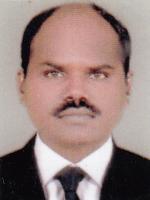
Dr. P.Arunachalam is the Professor and Head of the Department of Applied Economics, Cochin University of Science and Technology (CUSAT), Kochi-22, Kerala State, India. He was the Head of the Department of Applied Economics, Cochin University of Science and Technology three times during the period April 2004 to April 2007. And again became the Head of the Department from July 2013 to July 2016 and third time from October 2018 onwards. He has thirty one years of Teaching and Research Experiences. Now he is the Chairman , Board of Studies, Department of Applied Economics, CUSAT.
“Bharat Vidya Ratan Award” 2018 by International Business Council, 115, first Floor, Vardhaman Mayur Market, Delhi -110 096. “Bharat Ratna Indira Gandhi Gold Medal Award 2018”, By Global Economic Progress and Research Association Tiruvannamalai-606 601. “Bharat Rana Dr. Abdul Kalam Gold Medal Award 2018”, By Global Economic Progress and Research Association Tiruvannamalai-606 601. “Life Time Academic Achievement Award 2019” by Maya Publications, Chennai. “Best Citizen of India Gold Medal Award 2019” by Global Economic Progress and Research Association Tiruvannamalai-606 601. He has valuated more than 250 Ph.d thesis and conducted Ph.D viva voce examination for 200 candidates in various universities in India
He has completed another major research project on “Solid Waste Management in Kerala” sponsored by ICSSR, New Delhi.
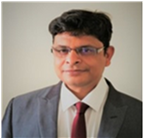
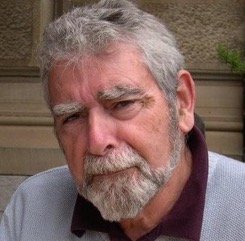
Honors:
Extracellular matrix and biomineralization (phosphorylated and glycosylated proteins, proteoglycans, phospholipids, metalloproteinases) - Development of dental tissues: dentinogenesis, amelogenesis - Pulp biology, adult STEM cells, recruitment, and differentiation- Tissue engineering - biocompatibility of restorative biomaterials with pulp cells.
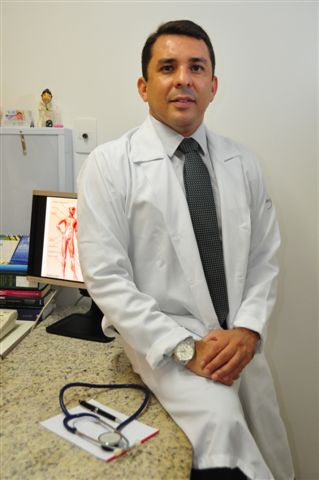
Attained bachelors at Medicina from Bahiana School of Medicine and Public Health (1997) and doctorate at Sciences Area of Concentration Rheumatology from Faculty of Medicine of the University of São Paulo (2005). 15 years of experience in the field of Medicine and Rheumatism.
Rheumatology
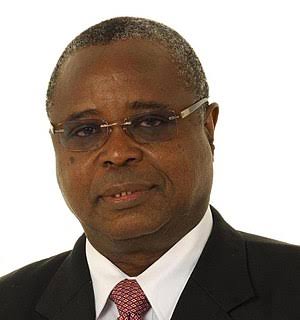
Prof. Benjamin has received his MD, Ph.D. in pathophysiology, and MMed in Internal Medicine from the Bukarest Medical Institute (Romania), MSc in Cardiology, and Ph.D. in Cardiology at the Free University of Brussels (Belgium). He is a former Fulbright Scholar and Visiting Professor in Clinical Pharmacology/Hypertension at the Institute of Lipid Research, Baylor College of Medicine, Houston (USA). He served for 30 years as chief of cardiology, Executive Dean of Faculty of Medicine, and Deputy Vice-Chancellor at the University of Kinshasa, Democratic Republic of Congo. He is a member of 30 scientific societies, including the American Heart Association, American Diabetes Association, and American College of Cardiology, European Society of Cardiology, and Pan-African Society of Cardiology. He obtained a certificate in cardiovascular Epidemiology (Netherlands), Ethics (NIH), Bioethics (Oklahoma University), and Molecular genetics (Belgium, Italy). He is also a supervisor of more than 10 Ph.D. theses, 25 MSc theses, and 100 mini-dissertations, and over 300 papers published under his supervision.
General Human Physiology, Anatomy-Physiology, Cardiovascular Physiology, Pathophysiology, Renal Physiology, Cardiology, Haematology, Chronobiology and Biometeorology, Hypertension, AIDS, Diabetology, Physical Medicine, Molecular Genetics, Ophthalmology.
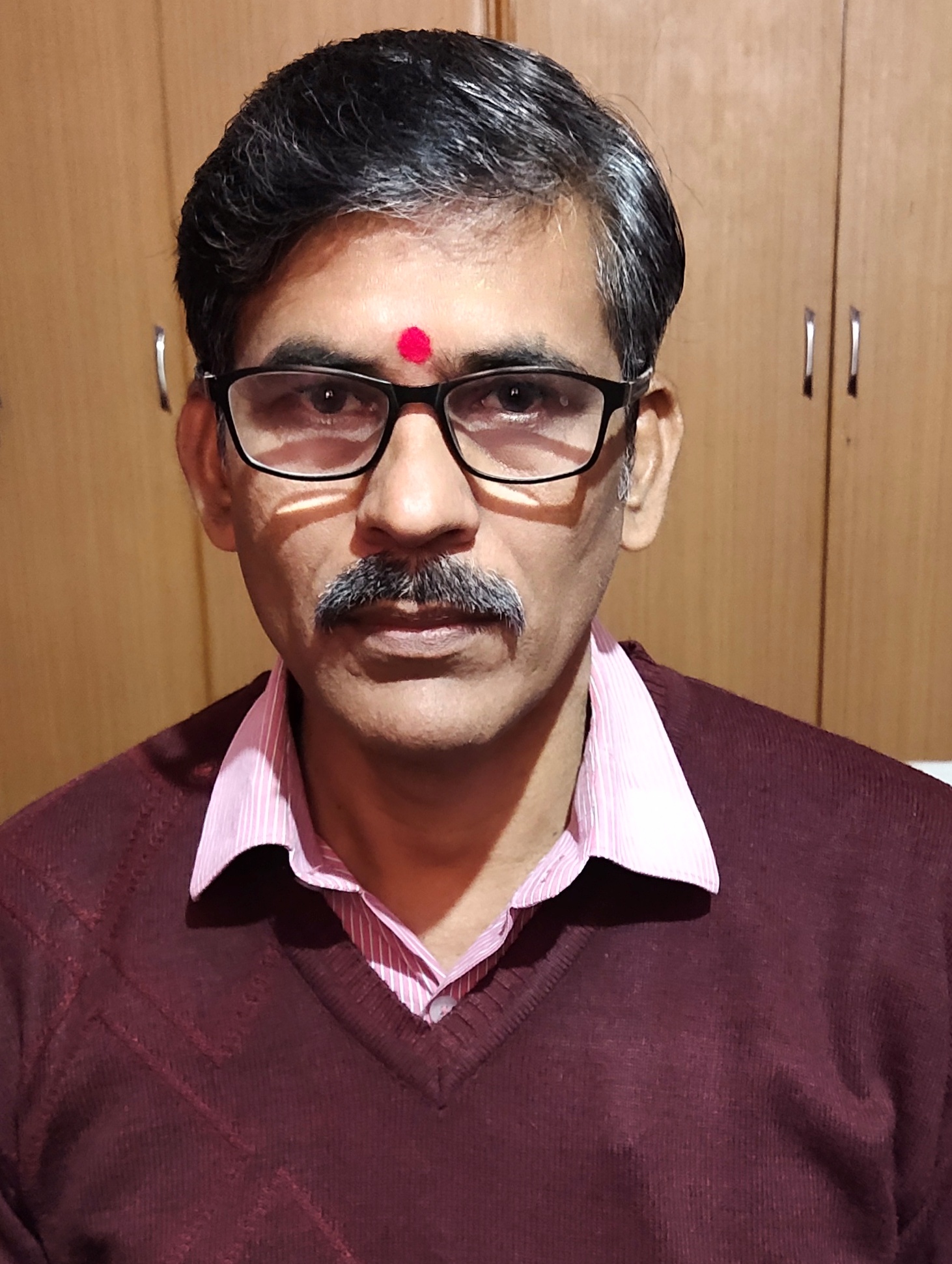

Dr. Huis graduated in 1973 from the University of La Plata School of Medicine, Argentina. His postgraduate training in Internal Medicine was completed at Ramos Mejia Hospital in Buenos Aires, Argentina. Fellowships in Medical Oncology were completed at the Universidad del Salvador and Chair of Oncology based at the Central Military Hospital, Buenos Aires, Argentina. He completed his oncology fellowship at the Miami Cancer Institute, Florida, USA. He is Head Professor of Oncology and Course Director of Oncology at Maimonides University School of Medicine. Since 1983 he has been Medical Director and Chief of Medical Oncology, Centro Oncologico Buenos Aires (COBA). Since 1996, Dr Hunis has been an Associate Investigator in the ATLAS study, Oxford University, and principal clinical investigator in multicenter studies of Phase II and Phase III breast cancer, lung, melanoma, and cancer-related pain.
Oncology, Breast Cancer; Lung Cancer
Clinical Trials, Clinical Research, Medicine, Pharmaceutical industry, Medical Devices
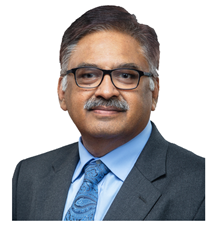
Dr. Rajendra D. Badgaiyan, MD, is the Chief of Psychiatry at South Texas Veterans Health Care System San Antonio, Texas, and Professor of Psychiatry at Long School of Medicine, University of Texas Health, San Antonio, Texas. Dr Badgaiyan went to medical school in Bhopal, India and trained in cognitive neuroscience and neuroimaging in University of Oregon, University of Pittsburgh and Harvard University. After completing psychiatry residency at Harvard Medical School he was inducted in its faculty as an Assistant professor. In addition to Harvard he had faculty positions at SUNY Buffalo and University of Minnesota as a tenured full Professor. He also served as the Chairman of Psychiatry Department and Professor of Psychiatry in a hospital affiliated to Icahn School of Medicine at Mt Sinai, New York. Dr Badgaiyan developed a neurotransmitter imaging technique called the single scan dynamic molecular imaging technique (SDMIT) or neurotransmitter imaging technique to detect, map, and measure neurotransmitters released acutely in the live human brain. Using this technique, he studies dopaminergic control of human cognition and behavior.
He has received several prizes and awards including the prestigious Solomon Prize of Harvard Medical School and BK Anand National Research Prize in India. His research is funded by the National Institutes of Health, Department of Veterans’ Affairs, Dana Foundation and other agencies. Dr Badgaiyan has published over 200 research papers, book chapters and a book titled ‘Neuroscience of the Nonconscious Mind’ (Elsevier/Academic Press).

- Director and Vitreoretinal Consultant at Oftalmo Abad, Clínica de Ojos, Santa Cruz, Argentina
- Ambassador at UNESCO for Argentina
- Medical Doctor (MD), Cordoba National University, Córdoba, Argentina
- Diploma in Ophthalmology (DO), Council Doctors of Santa Cruz, Argentina and Argentine Society
of Ophthalmology
- Philosophy Doctor (Ph.D.) in Genetics and Cell Biology, Bircham International University, Spain
- Master of Business Administration (MBA) in Medical Institutions, Bircham International University,
Spain
- Honorary Distinction “Magna Cum Laude”, (doctoral thesis), Bircham International University, Spain
- Doctor Honoris Causa (Dr.h.c.) contribution to the knowledge and to the scientific research in
Ophthalmology, Bircham International University, Madrid, Spain
- Philosophy Doctor (PhD.) as researcher, International Philosophical Institute, India
- Doctor of Sciences (DSc.) in Ophthalmology “ad eundem” (education and practice in Ophthalmology)
Ballsbridge University, Roseau, Commonwealth of Dominica
- Doctor of Sciences (DSc.) as Boitech researcher, Research Training & Treatment Institute, Jodhpur,
India
- "American Grand President Sir", International Chartered World Learned Society, Chancellor for
Education, Peace and Justice, Nigeria
- Doctor of Letters (D. Litt.) in Medical Research, Maha Sastra University, Sastra Angkor Institute, The
Kingdom of Cambodia
- Associate Fellow at New York Academy of Medicine, NY, USA
- Golden Medal of Excellence “International Health Professional of the Year -2012” (scientifics research),
International Biographical Centre, Cambridge, England
Eye Biotechnology and Ocular Nanomedicine and Stem Cells.
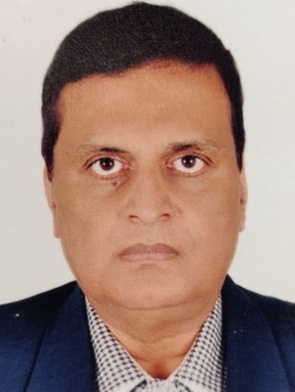
Dr. Rajeev R Shah is a competent and experienced medical microbiologist. His whole unrevised Ph.D. thesis had been uploaded by Shodganga, a well-known search engine on the website. He had been even awarded D.Sc.(Medical Microbiology) from IASR(International Agency of Standards and Ratings) on the recommendation of the world talent search committee. He had worked in many medical colleges all over India at various higher positions like Principal of paramedical Courses, officiating dean for counseling in medical super specialties courses seats and many times undergraduate seats in MP, head of the department, professor, associate professor, etc. He had even served as a Reader in various Dental Colleges for about six years. He had been nominated as a member of the editorial board in many international journals. He had been invited and nominated as Conference Committee Member in many international conferences. He was awarded the best editorial article in the issue of October 2019 in ASMI, an international journal of microbiology. He has been invited as a keynote speaker to International Conference on Oncology & Virology in Bangkok. He had published 30 papers in various international journals, among all these except three papers he had been the first and main author. Recently his twelve articles on Covid 19 have been published in international journals. Recently he is working as a Head & Professor in the microbiology department of Pacific Medical College and Hospital, Udaipur, India.
IMMUNOLOGYY, DIAGNOSTIC MICROBIOLOGY, VIROLOGY, INFECTIOUS DISEASES, IMMUNE THERAPIES, COVID 19, HIV & SECONDARY INFECTIONS, GENETIC STUDY, DENTAL MICROBIOLOGY, MEDICAL EDUCATION.
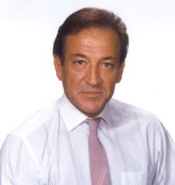
Critical Care Medicine, California, U.S.A. He was formerly Professor of Radiology, Radiological Sciences, Radiation Oncology, Critical Care Medicine, and Physics at several U.S. and European Universities. Earlier, he was Deputy Director (Western Region) of the U.S. Department of Veterans Affairs (Office of Research Oversight). At the Loma Linda Veterans Affairs Medical Center, he was Scientific Director of Radiology, Director of the Magnetic Resonance Imaging Center and, for a time, Acting Chair of Radiology. Previously, he was Director of the Division of Biomedical and Biobehavioral Research at the University of California at Los Angeles/Drew University of Medicine and Science. He was also Scientific Advisor to the U.S. National Academy of Sciences, National Research Council, for its postdoctoral programs tenable at the California Institute of Technology and Member of the Advisory Group for Research & Development, North Atlantic Treaty Organization (NATO). He is Health Advisor to the American Heart & Stroke Association, Coachella Valley Division, California. He is a frequent Keynote Speaker and Organizing Committee member at several international scientific/medical conferences. He has lectured extensively in the U.S.A, Canada, Europe, Asia, and Africa. He has published ~ 475 scholarly scientific publications and books. He is also Editor-in-Chief, Honorable Editor or Editor of numerous medical/scientific Journals to which he regularly contributes. He is a member of the New York Academy of Sciences and the European Union Academy of Sciences, a Board member of several institutions, and a reviewer for the prestigious UNESCO Newton Prize, United Kingdom National Commission for UNESCO.
Dr. Fymat's current research interests are focused on neurodegenerative diseases (Alzheimer's, Parkinson's, epilepsy, dementias, and others), oncology (glioblastoma), epigenetics & ecogenetics, and nanomedicine & nanobiotechnology. These are represented in part in his latest books: “From the Heart to the Brain: My collected works in medical science research (2016-2018)”, “Alzhei ...Who? Demystifying the disease and what you can do about it”, “The Odyssey of Humanity's Diseases: Epigenetic and ecogenetic modulations from ancestry through inheritance, environment, culture and behavior” Volumes 1, 2, and 3, Parkin..ss..oo..nn: Elucidating the disease and what you can do about it, and Lyme disease: The great invader, evader, and imitator, and his forthcoming book “Dementia: Fending-off the menacing disease... and what you can do about it”

Dr. Farid Menaa is an inter- and multi-disciplinary professional with worldwide reputation. He has three international post-doctoral terms in Oncology, Dermatology, and Hematology; MBA Entrepreneurship and MD candidate. During his ongoing career, he has mainly contributed to the identification and functions of new human disease-causing genes and variants, formulated natural products for anti-aging and developed innovative theranostic strategies against cancers, cardiovascular diseases, diabetes, obesity and infectious diseases. He has more than 10 years’ experiences either in the academic, hospitals or industrial sectors. As Chief Scientific Officer and Vice-President R&D at Fluorotronics, Inc. he actively participated in the development of the disruptive “Carbon-Fluorine Spectroscopy”. Dr. Menaa collaborates with various organizations worldwide. He is a member of several prestigious medical and scientific organizations and editorial boards in the field of medicine, science, technology and business, including in the nano-segment. He has authored more than 100 articles including research and review articles, books, book chapters, textbooks, proceedings, and has participated to over 200 scientific international events including as co-organizer, keynote speaker, chairman. Dr. Menaa’s worldwide collaborations, holistic point of view and strong expertise in various fields led him to prevent, implement early diagnosis, and develop efficient and safer therapy.
Dr. Farid Menaa’s research interest includes Preventive Medicine, Personalized Medicine, Translational Medicine, Integrative Medicine, Green Medicine, Nanomedicine, Biotechnology, and Nanotechnology.
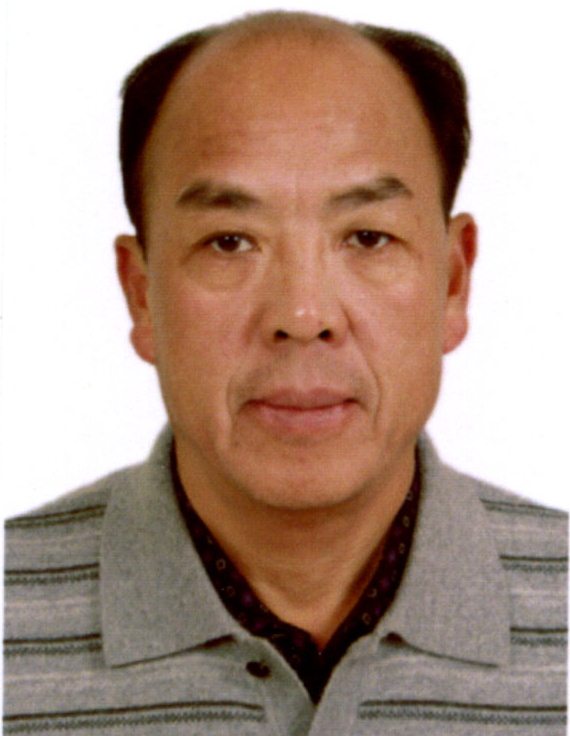
Yiqing Li is a professor and forest ecologist at the University of Hawaii at Hilo. He conducts research on the tropical and subtropical forest ecology, with a focus on mechanisms of below-ground processes of forest ecosystems. He is interested in field experiments of climate change manipulation, especially the soil warming effects on both natural forests and plantations in tropical and subtropical regions. He also conducts research on invasive species control and native forest restoration in the tropics. He is a core principal investigator of the collaborative research project “Manipulating and modeling climate change effects on tropical and subtropical forest production and biodiversity”, an integration of research programs that study global change in tropical forest ecosystems. Recent and ongoing research activities include: integrated understanding of climate-induced tree mortality and forest die-off, invasive species assessment, and ecological restoration of dry forests and woodlands in Hawaii. He teaches graduate and undergraduate course Forest Hydrology and Watershed Management, Forest Restoration and Tropical Soils. He serves several editorial boards of forestry and agricultural journals.